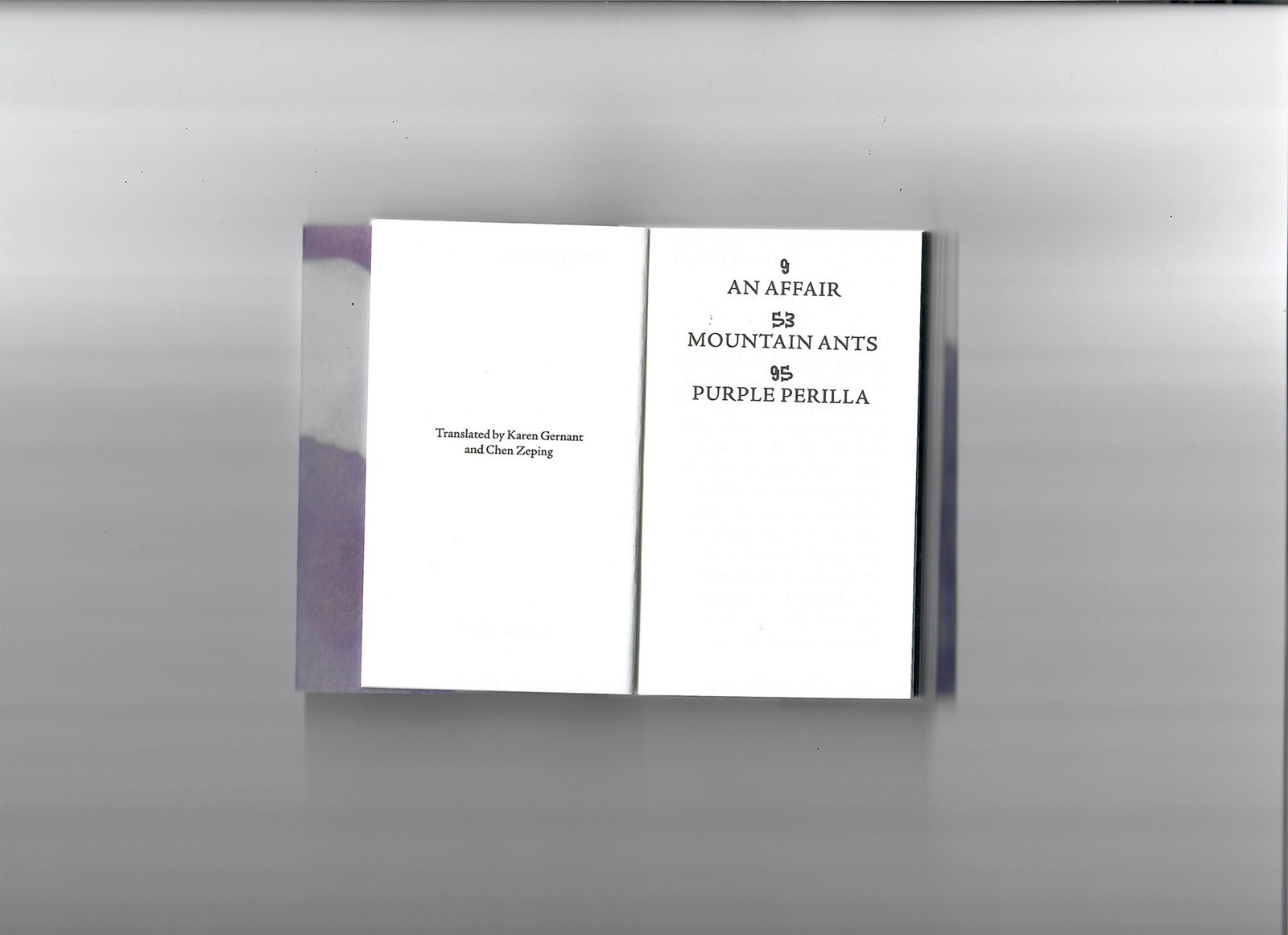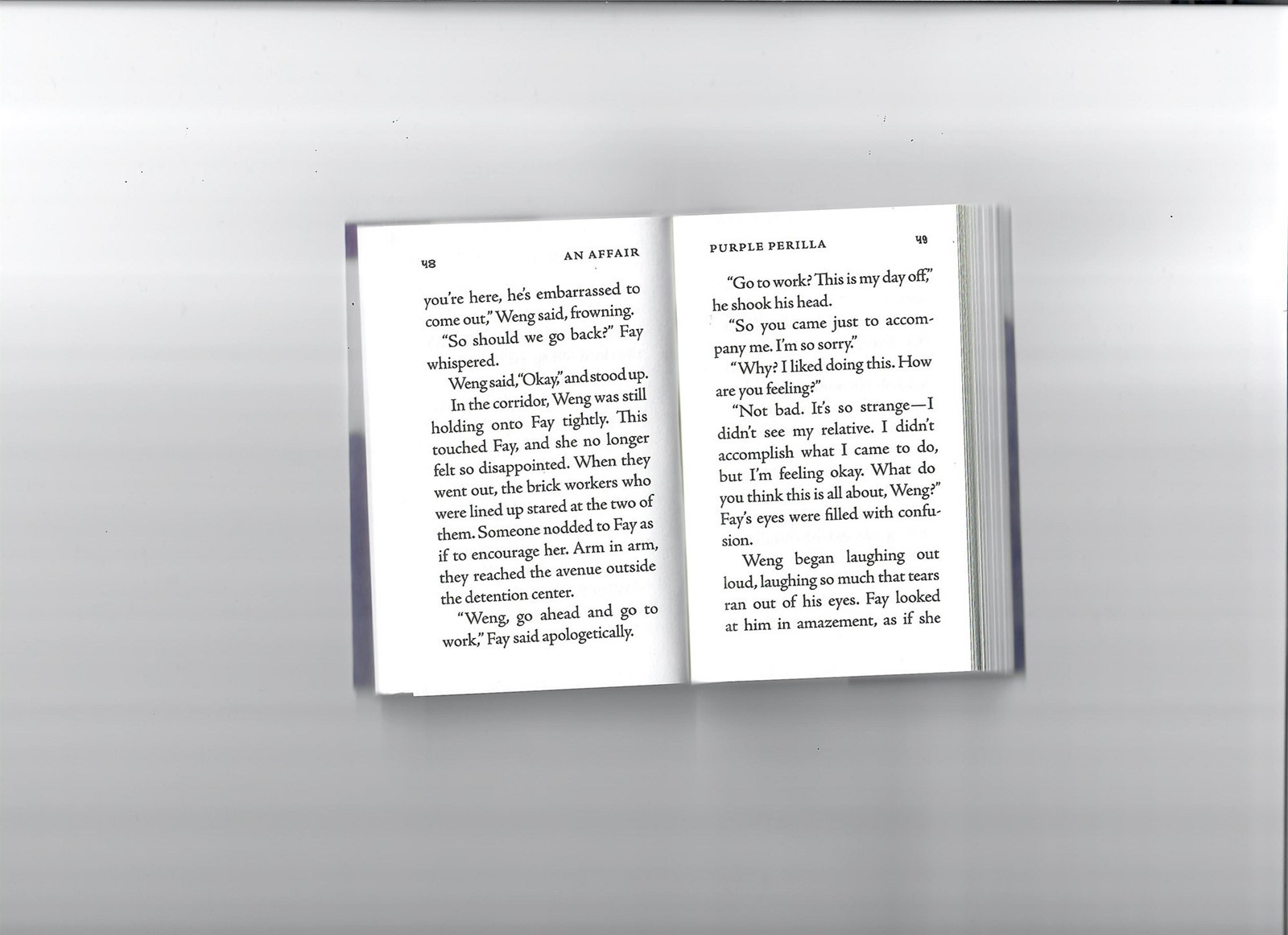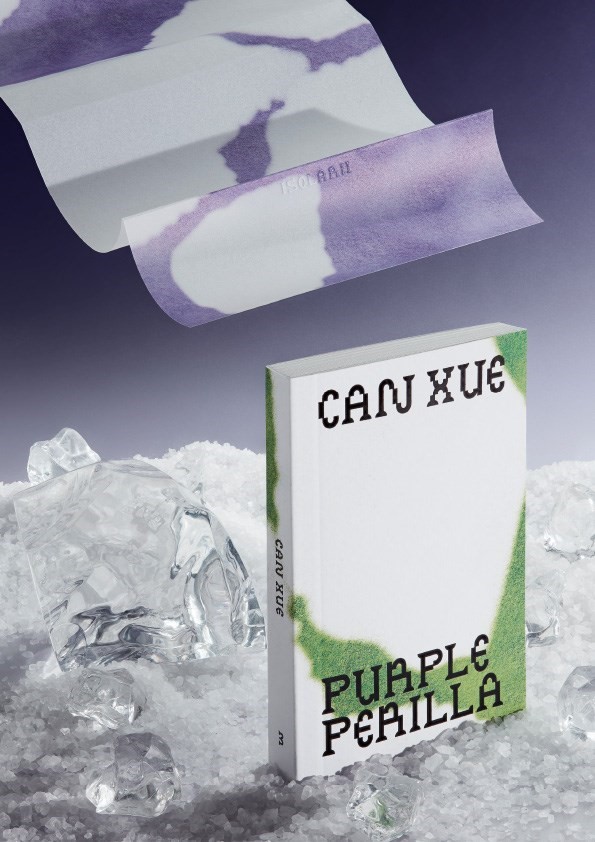Lauded by Susan Sontag as the Chinese author most deserving of the Nobel Prize, Can Xue is a notorious autodidact, steeped in the works of Borges, Kafka, and Calvino. Can xue, a pseudonym, means “stubborn snow” – urban slush that refuses to melt, or the pure-white caps of mountain peaks. As a writer, Can Xue is both: grounded and exalted by a commitment to experimentation. Her formal education ended at 13 when her father was interned in a labour camp during the Cultural Revolution, after which she became a factory worker and then a tailor. At 30, she took up writing and developed the technique for which she’s famous: treating each story as a performance, like a dance staged from beginning to end, she writes for an hour every day with no editing permitted.
In the intervening decades, Can Xue has produced an unparalleled body of work, from short stories to literary criticism and novels, all based on her own deeply held beliefs about how humans can and must live with nature. While her thought is more relevant than ever, only a handful of her books have been translated into English.
In March 2021, Sebastian Clark and India Ennenga published her latest work, Purple Perilla, as part of their series isolarii. The book is accompanied by Scholastique Mukasonga’s digital foreword and a soundtrack composed by musician Warren Ellis.
To find out more about the new book and Can Xue’s approach to writing, Hans Ulrich Obrist, artistic director of the Serpentine Galleries, interviewed the author from her home in the remote mountain village of Xishuangbanna.

Hans Ulrich Obrist: Your work moves beyond classification into given genres and you have described your writing as a performance. Can you speak about writing as performance and as a dance and how this performance unfolds between your work and its reader.
Can Xue: First, for me personally, writing is a spontaneously unfolding performance of the body and the soul. With many years of practice I have already mastered the profound mystery of this kind of literary performance.
Moreover, my performance is also a summons to readers. Through my writing I send out signals to their bodies and souls, stimulating and inspiring them to turn on the mechanism of their bodies and souls. Once this contradictory mechanism of art is started, they will take part in my performance, with their own experiences as a foundation, performing together with me this new literature of the new millennium.
“ ... for me personally, writing is a spontaneously unfolding performance of the body and the soul” – Can Xue
HUO: Marcel Duchamp says the viewer of an artwork does 50 percent of the work. Would you agree that the reader does that too?
CX: He was right, both literature and art are undertakings that two parties complete together. In the new century this point has become especially significant. As to avant-garde literature and art, we still have so much critical work to do – communication truly is very difficult.
HUO: Purple Perilla is a cycle of three stories. Is it your response to the current moment where many people also in Europe leave the city? For example, more than 700,000 people left London over the last year. Is the future the countryside?
CX: My fiction promotes a new view of practical philosophy and literature. Humankind must regard nature as oneself, and this oneself is formed of body and spirit; both are essential, because they are the two sides of a contradiction, so you cannot have one without the other. If someone opposes themself to the body of nature, they won’t come to a good end! The city and the countryside are both nature, so returning to the countryside is precisely returning to the human body. Humankind should reflect on how it has handled the relationship between the two.

HUO: You described these extraordinary stories as “experiments without an escape route.” Can you tell me about the process of writing which does not involve editing? I was friends with the late surrealist Greek poet Nanos Valaoritis who always told me that automatic writing is a portal to the subconscious.
CX: It shouldn’t be forgotten that I am Chinese. My fiction is not surrealism at all, but instead a different kind of even more complex literary model. Right now I can still only explain to you that this is an ancient artistry of the Chinese people that at present is difficult for Western readers to fully grasp. If you want to understand this kind of artistry, apart from a high level of literary quality, you must also enter deeply into the core of Chinese culture and philosophy, then come out of there and enter into the core of Western culture and philosophy, and then further transform the two of them into an antithesis of contradiction, and in this way gain a rare, original impulse. This activity is like sex, and has many secrets. Every day, in the time left over from writing, I am working a large philosophical project that I call “Interpretation of the New Practical Philosophy.” I have been working on this project for over a decade.
I am very different than surrealism, and I also do not completely agree with Freud’s interpretation of the “subconscious” – his interpretation is too mechanical, too simple to be able to enter deeply into the core. The world needs new philosophy and literature, and I am certain in my belief that in the future Eastern culture and Western culture truly will form one body, one that is mutually essential.
“The world needs new philosophy and literature, and I am certain in my belief that in the future Eastern culture and Western culture truly will form one body, one that is mutually essential” – Can Xue
HUO: Rainer Maria Rilke famously wrote his Letters to a Young Poet. What would your advice to a young writer be in 2021?
CX: Create! Create! Create! Practice! Practice! Practice!
HUO: We know a lot about architects’ unrealised projects because they regularly publish them, and very often get them built later on by publishing them. Yet we hardly know anything about writers’ and artists’ unrealised projects. Projects can be unrealised because they’re too big, too expensive or the technology doesn’t exist. Because one has not had the time or space. There are projects on file one has forgotten about. Sometimes they can be partially realised, or even too small. There are censored projects or, as Doris Lessing once told, there are also the projects we have not dared to do yet ... Can you tell me about one or two of favourite unrealised projects (can also be outside literature)?
CX: I can’t. I make a unique distinction between realised and unrealised, different than the generally recognised distinction, so I am not willing to answer this question.
Purple Perilla is the third isolarii, available here.
